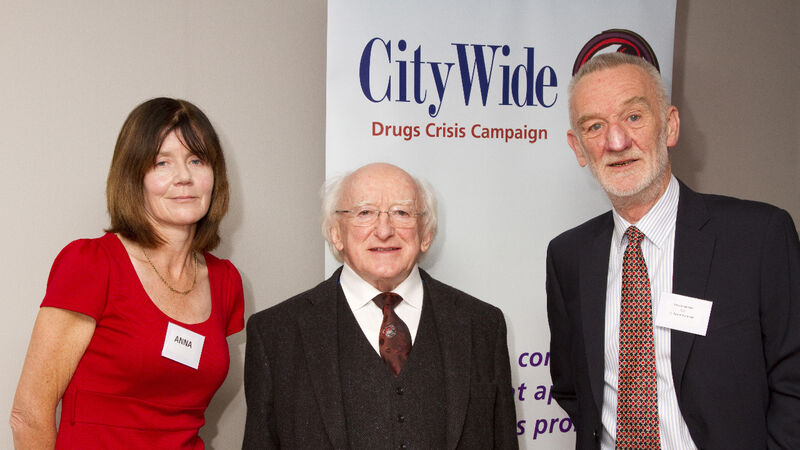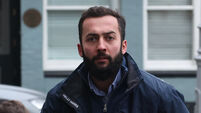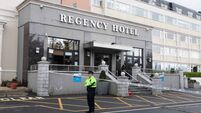Community safety fund 'step in the right direction' in fighting crime scourge

Anna Quigley and Tony Geoghegan of CityWide Drugs Crisis Campaign with President Michael D Higgins. Ms Quigley said they had long campaigned for such a funding mechanism. Picture: Jim Berkeley
A Government decision to establish a community safety fund has been welcomed by local activists.
Justice Minister Helen McEntee announced that she and Public Expenditure Minister Michael McGrath have agreed, in principle, to set up the fund.












